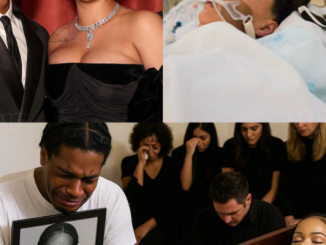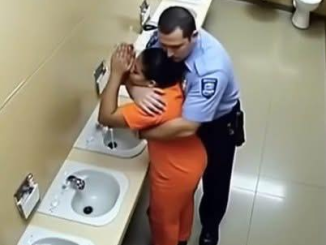
I don’t remember the sound. Just the flash.
One second, I was tossing my gear into the truck. The next, I was on the ground—ears ringing, hand burning, blood dripping into my eyes. People were yelling. Someone said, “Don’t move!” Someone else said, “Was it a gun?” But I knew it wasn’t.
It was my backpack.
The same one I’d used for years. Camping trips. Weekend gigs. Nothing fancy—just duct-taped, broken-zipped, always-overstuffed. That morning, I tossed in a few things like always: a power bank, tools, a cheap vape, some random battery packs I hadn’t used in forever.
Turns out, one of them didn’t like the heat.
They said it was a “thermal runaway.” A fancy way of saying a battery exploded and took half my hand with it.
I’ve got stitches in my arm, a busted lip, a fractured cheekbone, and burns I’m still trying to wrap my head around. But I’m alive. And that… that doesn’t make sense when you look at the scorch marks on the sidewalk.
The nurse asked me if I had any regrets.
I laughed and said, “Yeah. That vape pen from the gas station.”
But later, when I was alone, I thought of something else. Someone else.
Because just before I left the house, my daughter had asked to carry my bag for me.
I told her, “Nope. It’s too heavy, kid.”
If I’d said yes…
…if I’d said yes, would she have been the one on the ground, bleeding and burning, instead of me?
The thought haunted me, gnawing at the edges of my mind as I lay there in the hospital bed, half-conscious and numb from painkillers. I had never been the kind of person to dwell on what-ifs. I had always believed in the present, in moving forward, in facing life as it came. But that day, that moment, changed everything.
I remember the moments before the explosion. I had been in a rush, tossing everything into my old, familiar backpack as quickly as I could. I was late for a job—just another gig, another day in the grind. It didn’t matter that I had a kid at home, or that my wife was probably already stressed with everything on her plate. I had become so used to being on autopilot, so consumed by the routine, that I didn’t think twice about what I was doing.
When I went to the truck, I didn’t think about the temperature that day. I didn’t think about the battery packs that had been sitting in that bag for months, unused and forgotten. I didn’t think about anything except getting on with my day. And in those split-second decisions, I’d set something in motion that would change everything.
After the explosion, it took a while for anyone to even find me. I couldn’t hear anything except a buzzing in my ears, and my vision was blurry. I felt dizzy, disconnected from my body, like I was hovering just above the scene.
I should have been dead.
I still can’t wrap my head around it.
The doctors told me later that the blast should have been fatal. The burns, the damage, the force of the explosion—it was all far beyond what anyone could survive. But somehow, I had been spared. My hand, though mangled, still had enough functionality to grip a cup. My face, though scarred, still looked human. My body, though broken, was still breathing.
But here’s where it gets strange. The one thing I couldn’t forget was my daughter’s face in my mind, just before the explosion. It had happened so quickly that I hadn’t even thought about it at the time, but later, the image of her asking to carry my bag replayed over and over.
If I’d said yes, would she have been in my place?
Would she have survived?
For the first few days in the hospital, I couldn’t shake the guilt. It didn’t matter how many times people told me I was lucky or that it wasn’t my fault. In the silence of my room, I could hear her voice asking me again and again, “Can I carry your bag, Daddy?”
And then, one night, something happened.
I was alone, trying to fall asleep despite the pain. My body was aching, but my mind wouldn’t stop racing. That’s when I heard a soft knock at the door.
It was my wife, Rachel. She didn’t say anything at first, just sat by my bed. Her eyes were red, and I could see the exhaustion on her face. She had been holding it together while I was out cold, and now, she was sitting there, silent.
“You’re going to be okay,” she finally said, her voice cracked. “I know it’s a lot, but you’re alive, and that’s all that matters.”
I nodded. What else could I do? I couldn’t promise her that things would go back to normal because I didn’t know what normal even looked like anymore. I couldn’t promise her that I wasn’t scared out of my mind, that I wasn’t terrified for what might happen to me in the future.
She took a deep breath, like she was working up to something. “You’ve been thinking about it, haven’t you?”
“About what?” I asked, not understanding.
“About what could have happened to her. Our daughter. You’re blaming yourself.”
I opened my mouth to argue, but I stopped myself. There was no point in denying it. She could see it, and honestly, so could I.
“I should have let her carry the bag,” I said, my voice barely above a whisper.
Rachel shook her head. “No. You don’t get to do that to yourself. You are alive, and that’s all that matters. You don’t know what would have happened. You can’t keep blaming yourself for something you couldn’t control.”
Her words stung. They were meant to comfort me, but they also reminded me of something I had been avoiding. Life didn’t work like this—there wasn’t some neat, cosmic balance where every bad decision I made had a consequence, and every good one had a reward. Things didn’t happen because I deserved them. They just… happened.
But the truth was, I had no control over it. I had no control over the backpack, over the heat, over the tiny battery that had decided to fail at the worst possible moment. I had no control over what could have happened if my daughter had carried that bag.
And in that moment, I realized something else: I had survived for a reason.
Maybe it was luck, maybe it was fate, or maybe it was just a matter of timing. But I was still here, and now I had a choice. I could choose to let this define me—this guilt, this fear, this what-if scenario that would never have an answer. Or I could choose to move forward, to do something with this second chance that life had given me.
So, I did. I started slow. I spent more time with my daughter. I took on less work and started saying “no” to things that didn’t matter. I focused on what I could control—the things that really mattered. The people I loved. The moments I could still share with them.
And as for the guilt? It didn’t go away overnight. But I learned to live with it. It became a part of me, a reminder that I had survived, and that was enough. The past couldn’t be rewritten, but the future was still mine to shape.
Eventually, things started to feel more normal again. I healed, both physically and emotionally. My wife and I grew stronger together. We made new memories, ones that didn’t include the explosion, ones that celebrated the fact that we were still here. That I was still here.
And here’s the twist: About six months later, I found out that my daughter had asked to carry the bag for one reason: she wanted to be just like me. She admired me. She didn’t see the weight of my life, the struggles or the baggage I was carrying—she just saw her dad, the guy who could do anything. And that, I think, was the greatest gift I could have received: the chance to be her hero, the way I’d always hoped I could be.
In the end, life didn’t just teach me about survival—it taught me about the people I’m here for. And no matter how hard things get, no matter how many times we feel like we’re losing control, we’re never truly alone. The ones who matter most will always be there, even when we think we’re the ones holding everything together.
So, if you’ve ever felt like your life has been turned upside down, remember this: we all have our moments, our explosions, our moments of fear. But it’s what we do after that counts. Keep going. Keep living. Keep loving.
And if this story resonated with you, don’t forget to like and share it with someone who might need a reminder that life always gives us the chance to start over, no matter the scars we carry.






Leave a Reply